第141章 XV(2)
Then, again, a little bunch of Heinies will fight like the devil.
They say it depends on what part of Germany they come from; the Bavarians and Saxons are the bravest."
Colonel Scott waited for an hour, and then went about, shaking his sleeping officers.
"Yes, sir." Captain Maxey sprang to his feet as if he had been caught in a disgraceful act. He called his sergeants, and they began to beat the men up out of the strawstacks and puddles. In half an hour they were on the road.
This was the Battalion's first march over really bad roads, where walking was a question of pulling and balancing. They were soon warm, at any rate; it kept them sweating. The weight of their equipment was continually thrown in the wrong place. Their wet clothing dragged them back, their packs got twisted and cut into their shoulders Claude and Hicks began wondering to each other what it must have been like in the real mud, up about Ypres and Passchendaele, two years ago. Hicks had been training at Arras last week, where a lot of Tommies were "resting" in the same way, and he had tales to tell.
The Battalion got to Joachim farm at nine o'clock. Colonel Harvey had not yet come up, but old Julius Caesar was there with his engineers, and he had a hot breakfast ready for them. At six o'clock in the evening they took the road again, marching until daybreak, with short rests. During the night they captured two Hun patrols, a bunch of thirty men. At the halt for breakfast, the prisoners wanted to make themselves useful, but the cook said they were so filthy the smell of them would make a stew go bad.
They were herded off by themselves, a good distance from the grub line.
It was Gerhardt, of course, who had to go over and question them.
Claude felt sorry for the prisoners; they were so willing to tell all they knew, and so anxious to make themselves agreeable; began talking about their relatives in America, and said brightly that they themselves were going over at once, after the war--seemed to have no doubt that everybody would be glad to see them!
They begged Gerhardt to be allowed to do something. Couldn't they carry the officers' equipment on the march? No, they were too buggy; they might relieve the sanitary squad. Oh, that they would gladly do, Herr Offiizier!
The plan was to get to Rupprecht trench and take it before nightfall. It was easy taking--empty of everything but vermin and human discards; a dozen crippled and sick, left for the enemy to dispose of, and several half-witted youths who ought to have been locked up in some institution. Fritz had known what it meant when his patrols did not come back. He had evacuated, leaving behind his hopelessly diseased, and as much filth as possible. The dugouts were fairly dry, but so crawling with vermin that the Americans preferred to sleep in the mud, in the open.
After supper the men fell on their packs and began to lighten them, throwing away all that was not necessary, and much that was. Many of them abandoned the new overcoats that had been served out at the railhead; others cut off the skirts and made the coats into ragged jackets. Captain Maxey was horrified at these depredations, but the Colonel advised him to shut his eyes.
"They've got hard going before them; let them travel light. If they'd rather stand the cold, they've got a right to choose."